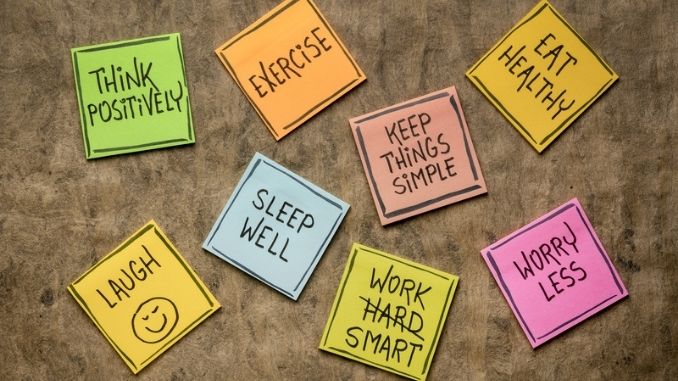Have you ever felt so exhausted that no amount of rest provides you with relief? After a full night’s sleep, do you still wake up feeling sluggish and foggy? In general, tiredness happens to everyone. It’s an expected, yet normal feeling after doing certain activities or at the end of a busy day. Ideally, this feeling of exhaustion is resolved by a good night’s sleep. However, when sleep doesn’t fix the issue, then that is not plain tiredness, but rather fatigue. This article covers foods and supplements that boost energy so that you can feel more alert and awake whenever you need it most. These recommendations will help give you the stamina and zest for life you’ve been looking for.
Fatigue
Fatigue is a generalized feeling of tiredness or lack of energy. It isn’t the same as simply feeling drowsy or sleepy. When you’re fatigued, you have no motivation and no energy.
If you find yourself sleeping until the last possible second before dragging yourself out of bed, you may be wondering, “Why am I always tired?” Or maybe you just don’t have the energy to get things done the way you once did. If so, you may already be suffering from fatigue.
Unrelenting exhaustion may also be a sign of an underlying illness, such as a thyroid disorder, heart disease, or diabetes. Lifestyle-related causes such as alcohol or drugs, or a lack of regular exercise can also lead to feelings of fatigue. Workplace-related causes, especially workplace stress, can undoubtedly lead to feelings of fatigue.
Fatigue is extreme, persistent, and can be debilitating.
Possible Causes For Feeling Chronically Tired.
1. Diet
If you tend to skip meals, you may not be getting the calories you need to keep your energy up. Long gaps in between meals can cause your blood sugar to drop, decreasing your energy. In addition, poor nutrition choices that regularly do not provide your body with the energy it needs to function optimally can cause feelings of fatigue. Eat more fresh fruits, vegetables, and whole grains. Curb your intake of sugar, junk foods, and fatty foods.
2. Vitamin Deficiency
Feeling tired all the time can also be a sign of vitamin deficiency. This could include low levels of vitamin D, vitamin B-12, iron, magnesium, or potassium. A routine blood test can help identify a deficiency, so be sure to talk to your doctor if your feelings of exhaustion persist.
3. Lack of Sleep
Late nights can definitely take a toll on your energy levels. Ideally, you should aim to get seven to nine hours of quality sleep each night. Bad sleep habits put you at risk for sleep deprivation, which will ultimately lead to fatigue.
Sleep disorder can also be the underlying cause of fatigue. For example, sleep apnea is a condition when your breathing temporarily pauses while you’re asleep. As a result, your brain and body don’t receive enough oxygen at night. This can ultimately lead to daytime fatigue. Sleep apnea is a serious condition. It can cause high blood pressure, and poor concentration, and lead to a stroke or heart attack. Treatment involves using a CPAP machine or an oral device to keep the upper airway open throughout the night.
4. Overweight
Being overweight can also cause tiredness. The more weight you carry, the harder your body needs to work to complete everyday tasks like climbing stairs or cleaning.
It’s important to create a plan to lose weight and improve your energy levels. Start with light activity such as walking or swimming, and gradually increase the intensity as your stamina allows.
5. Sedentary Lifestyle
Physical activity can also boost your energy levels. A sedentary lifestyle, on the other hand, can leave you feeling exhausted and sleepy. Obviously, a lack of physical activity can also lead to issues with your weight, so improving your physical fitness can have a tremendous impact on not only your energy levels but how your overall health.
6. Stress
When under stress, your body goes into fight-or-flight mode. This causes an increase in cortisol and adrenaline, which prepares your body to deal with stressful situations. In small doses, this response is safe and healthy. However, chronic or ongoing stress takes a toll on your body’s resources, leaving you feeling exhausted.
7. Depression
When you feel depressed, lack of energy and tiredness can follow. If you’re experiencing depression, talk to your doctor and discuss treatment options.
8. Chronic Fatigue Syndrome
You may feel tired all the time if you have chronic fatigue syndrome. This condition causes extreme fatigue that doesn’t improve with sleep. Its cause is unknown.
9. Fibromyalgia
Fibromyalgia causes widespread muscle pain and tenderness. This condition affects the muscles and soft tissues, but it can also cause fatigue. Because of the pain, some people with this condition are unable to sleep at night. This can lead to daytime sleepiness and fatigue.
10. Thyroid Disorders
Thyroid disorders can have an enormous impact on your energy level. Hypothyroidism, an underactive thyroid, causes your metabolism to slow down, causing you to feel tired, sluggish, and often depressed. Conversely, Hyperthyroidism, an overactive thyroid, causes your metabolism to speed up, which can create feelings of anxiety and restlessness that impact your ability to sleep.
Coping With Fatigue
There are many steps you can take to help keep feelings of fatigue at bay. Making healthier lifestyle choices is the best way to maintain your energy levels. This includes:
- Eating often with regular meals and healthy snacks every 3 to 5 hours.
- Exercise daily. Start with a small amount of exercise and build up the intensity and duration gradually until you achieve the recommended goal of 2.5 hours of moderate-intensity aerobic exercise each week.
- Get enough quality sleep. Try to structure your sleep so you go to bed and wake up at the same time every day. Try to avoid taking naps during the day unless necessary. Take time to relax your body and mind before you go to bed.
- Decrease your stress. If your fatigue coincides with stress, anxiety, or depression, you may need to seek medical help.
- Be aware of stimulants. Try to decrease caffeine intake from coffee, tea, cola, energy drinks, painkillers, and herbal remedies that might affect your sleep.
- Drink water regularly to avoid dehydration.
Fatigue and Supplements
Although better nutritional choices should always be your priority, there are ways to supplement your diet to address any nutrient deficiencies that may be causing your fatigue. Supplements that you might want to consider include:
Vitamin B1 (Thiamin)
Most of your body’s cells prefer to use carbohydrates as the main energy fuel, however, you need a steady supply of vitamin B1 to actually convert these foods into energy.
Vitamin B2 (Riboflavin)
While most of your body’s cells prefer to access energy from carbohydrates, they can use fats and protein too. Vitamin B2 helps the body convert not just carbohydrates, but also fats and protein into energy. This vitamin is particularly important for energy production in the heart and muscles.
Vitamin B5 (Pantothenic acid)
This vitamin is needed for the development of the building blocks of protein and DNA. It is a crucial vitamin needed for normal energy-yielding metabolism, as it is involved in the breakdown of glycogen stores (found in the muscle and liver) into energy.
Co-Enzyme Q10
Coenzyme Q10 (aka CoQ10) is an antioxidant necessary for proper cell function, found in every cell of the body. Your cells need CoQ10 to produce energy, and research shows that it benefits patients with cardiovascular disease.
Iron
Iron is an essential mineral that helps oxygen circulate throughout the body. It is also necessary for the body’s cells to function and develop properly. An iron deficiency is the primary cause of anemia, impairing cognitive abilities, decreasing immunity, and negatively impacting work performance.
Remember, it is normal to feel tired from time to time, but lasting feelings of fatigue need to be addressed. Think about your current lifestyle choices and make adjustments wherever possible. You might also want to consider supplementation to help with any diet deficiencies. If your exhaustion persists, talk to your doctor.
Your diet plays an important role in your overall health. Learn how to end your digestive problems once and for all here.













